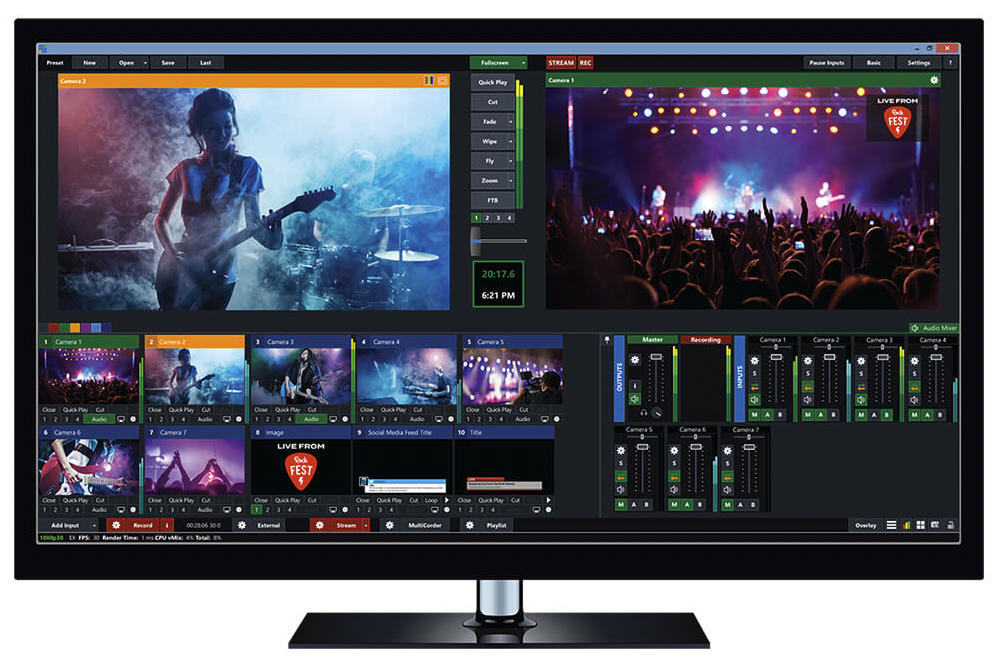Android vs. iOS is one of the most common decisions you’ll have to make when it comes to choosing a smartphone.
The two most popular options in the market are Android and iOS.
Both have their own unique features and advantages, making the decision a tough one for many consumers.
Android vs. iOS
Android:
- Open Ecosystem: Allows more customization and flexibility.
- Device Variety: Available on a wide range of devices with different price points.
- Customization: Offers extensive options to personalize devices.
- Expandable Storage: Often allows for microSD card slot for additional storage.
- Multitasking: Robust multitasking and multi-window capabilities.
- App Flexibility: Allows installation of apps from third-party stores.
iOS:
- Seamless Ecosystem: Offers a tightly integrated ecosystem with other Apple devices.
- Security: Known for strong security and privacy features.
- App Quality: Often first to receive new apps and updates.
- User-Friendly: Intuitive and easy-to-use interface.
- Software Updates: Provides consistent and timely OS updates to all compatible devices.
- Customer Support: Offers extensive customer support and services.
Both platforms have their own strengths and weaknesses, catering to different user preferences and needs.
Below we look deeper into the key differences between Android and iOS, explore their strengths and weaknesses, and provide you with the necessary insights to help you make an informed decision.
Table of Contents
1. User Interface and Customization
One of the first things you’ll notice when comparing Android and iOS is the difference in their user interfaces.
Android offers a more customizable experience, allowing users to personalize their home screens, widgets, and app icons.
On the other hand, iOS provides a more consistent and streamlined interface across all devices, ensuring a seamless user experience.
Android’s customization options extend beyond just the visual aspects. It allows users to set default apps for various functions, such as web browsing or messaging, giving them more control over their device.
iOS, on the other hand, restricts users to Apple’s default apps for certain functions, limiting customization options.
2. App Availability and Quality
When it comes to app availability, both Android and iOS offer a vast selection of applications through their respective app stores. However, there are some differences in terms of quality and exclusivity.
Android’s Google Play Store boasts a larger number of apps compared to Apple’s App Store.
This can be attributed to Android’s open-source nature, which makes it easier for developers to create and publish apps.
However, it’s worth noting that iOS apps are often considered to be of higher quality and better optimized for the platform.
This is due to Apple’s strict app review process, which ensures that only well-designed and secure apps make it to the App Store.
3. Device Options and Price Range
Android offers a wide range of device options from various manufacturers, catering to different budgets and preferences.
This means that you have the flexibility to choose a smartphone that suits your needs, whether it’s a budget-friendly option or a high-end flagship device.
On the other hand, iOS is exclusive to Apple devices, limiting your options to iPhones and iPads.
While Apple devices are known for their premium build quality and design, they also come with a higher price tag compared to many Android devices.
Android, on the other hand, offers a range of price points, making it more accessible to a wider audience.
4. Security and Privacy
Security and privacy are crucial considerations when choosing an operating system. Both Android and iOS have implemented measures to protect user data, but there are some differences in their approaches.
Apple’s iOS is often praised for its strong security features. The closed nature of the operating system and the strict app review process in the App Store help mitigate the risk of malware and other security threats.
Additionally, Apple’s commitment to user privacy is evident in features like App Tracking Transparency, which gives users more control over their data.
Android, being an open-source platform, is more susceptible to malware and security vulnerabilities. However, Google has made significant strides in improving security over the years.
The Google Play Protect feature scans apps for potential threats, and regular security updates are released to address any vulnerabilities.
5. Integration with Ecosystem
If you already own other devices within a specific ecosystem, such as a smartwatch or tablet, it may be worth considering the integration between your smartphone and these devices.
Both Android and iOS offer seamless integration with their respective ecosystems, but the level of integration may vary.
Apple’s ecosystem, which includes devices like the Apple Watch, iPad, and Mac, offers a high level of integration.
Features like Handoff, which allows you to start a task on one device and continue it on another, make the overall user experience more cohesive.
Android, on the other hand, offers integration with various Google services and devices, such as Google Home and Wear OS smartwatches.
FAQs – Android vs. iOS: Which Operating System Should You Choose?
1. Is Android or iOS more popular?
Android is the more popular operating system globally, with a larger market share compared to iOS.
2. Can I transfer my data from Android to iOS or vice versa?
Yes, it is possible to transfer your data from Android to iOS or vice versa. There are tools and apps available that can help you with the process.
3. Which operating system is better for gaming?
Both Android and iOS offer a wide range of gaming options. However, iOS is often considered to have a slight edge in terms of game selection and performance.
4. Can I use the same apps on both Android and iOS?
While many apps are available on both Android and iOS, there are some apps that are exclusive to one platform. It’s always a good idea to check the availability of specific apps before making a decision.
5. Which operating system receives more frequent updates?
iOS typically receives more frequent updates compared to Android. This is due to the closed nature of the iOS ecosystem, which allows Apple to push updates directly to its devices.
6. Can I customize the look and feel of my device on iOS?
While iOS does not offer the same level of customization as Android, you can still personalize your device to some extent by rearranging app icons, choosing wallpapers, and using widgets.
7. Does Android or iOS have better accessibility features?
Both Android and iOS have robust accessibility features, but the specific features and their effectiveness may vary.
It’s recommended to explore the accessibility options of each operating system to determine which one better suits your needs.
8. Which operating system is more secure?
iOS is often considered to be more secure compared to Android due to its closed ecosystem and strict app review process.
However, both operating systems have implemented measures to enhance security over the years.
9. Can I use Google services on iOS?
Yes, you can use various Google services, such as Gmail, Google Maps, and Google Drive, on iOS devices by downloading the respective apps from the App Store.
10. Does Android or iOS offer better integration with smart home devices?
Both Android and iOS offer integration with a wide range of smart home devices. The level of integration may vary depending on the specific devices and services you use.
11. Can I switch from Android to iOS or vice versa without losing my contacts and messages?
Yes, it is possible to transfer your contacts and messages when switching between Android and iOS.
There are methods available, such as using cloud services or third-party apps, to facilitate the transfer.
12. Which operating system is better for productivity?
Both Android and iOS offer a range of productivity apps and features. The better choice depends on your specific needs and preferences.
13. Can I use third-party app stores on iOS?
No, iOS does not allow the installation of third-party app stores. The App Store is the only official source for iOS apps.
14. Which operating system offers better voice assistants?
Both Android and iOS have their own voice assistants, Google Assistant and Siri, respectively.
The effectiveness and features of these voice assistants may vary, but both are capable of performing various tasks.
15. Can I use Android apps on iOS or vice versa?
No, Android apps are not compatible with iOS, and vice versa. Apps need to be specifically developed for each operating system.
Summary – Android vs. iOS: Which Operating System Should You Choose?
Choosing between Android and iOS ultimately comes down to personal preference and priorities. Android offers a more customizable experience, a wider range of device options, and greater flexibility in terms of price range.
On the other hand, iOS provides a more streamlined user interface, higher-quality apps, and a stronger focus on security and privacy.
Consider your specific needs and preferences when making a decision. If you value customization and a diverse range of device options, Android may be the right choice for you.
However, if you prioritize a seamless user experience, high-quality apps, and strong security features, iOS may be the better option.


